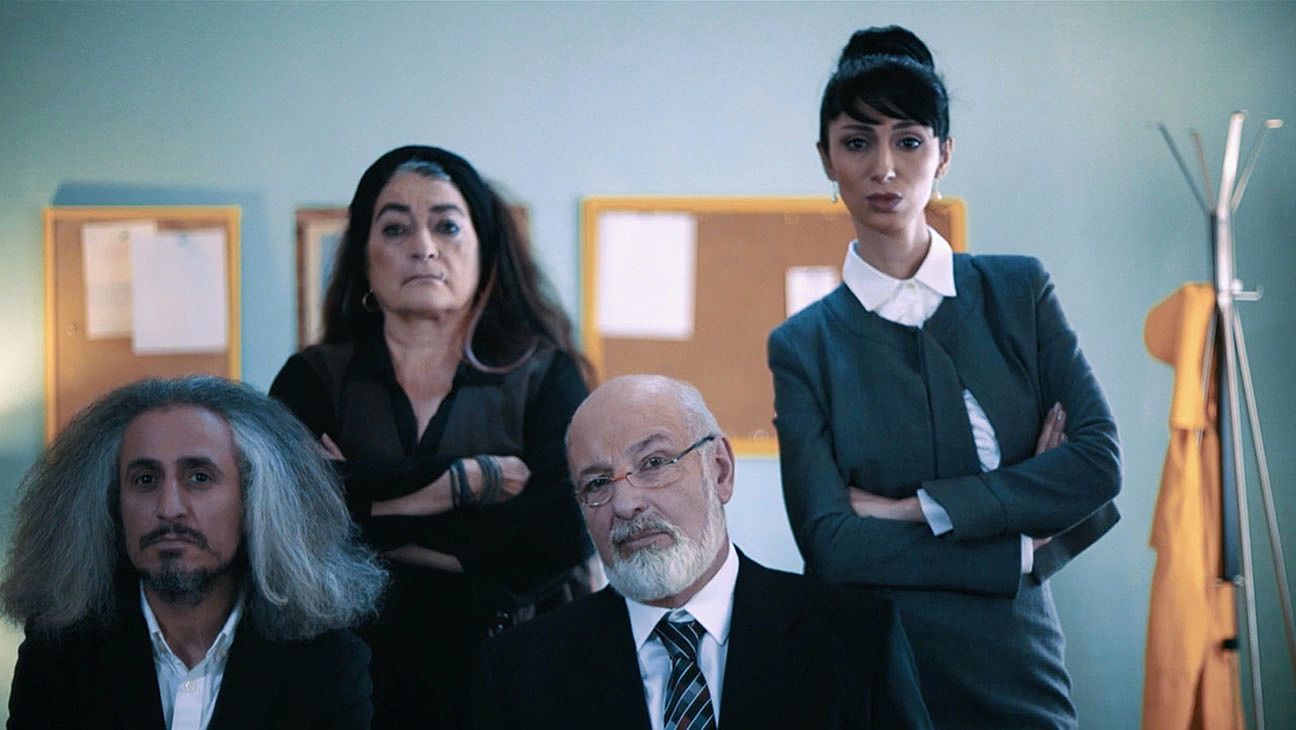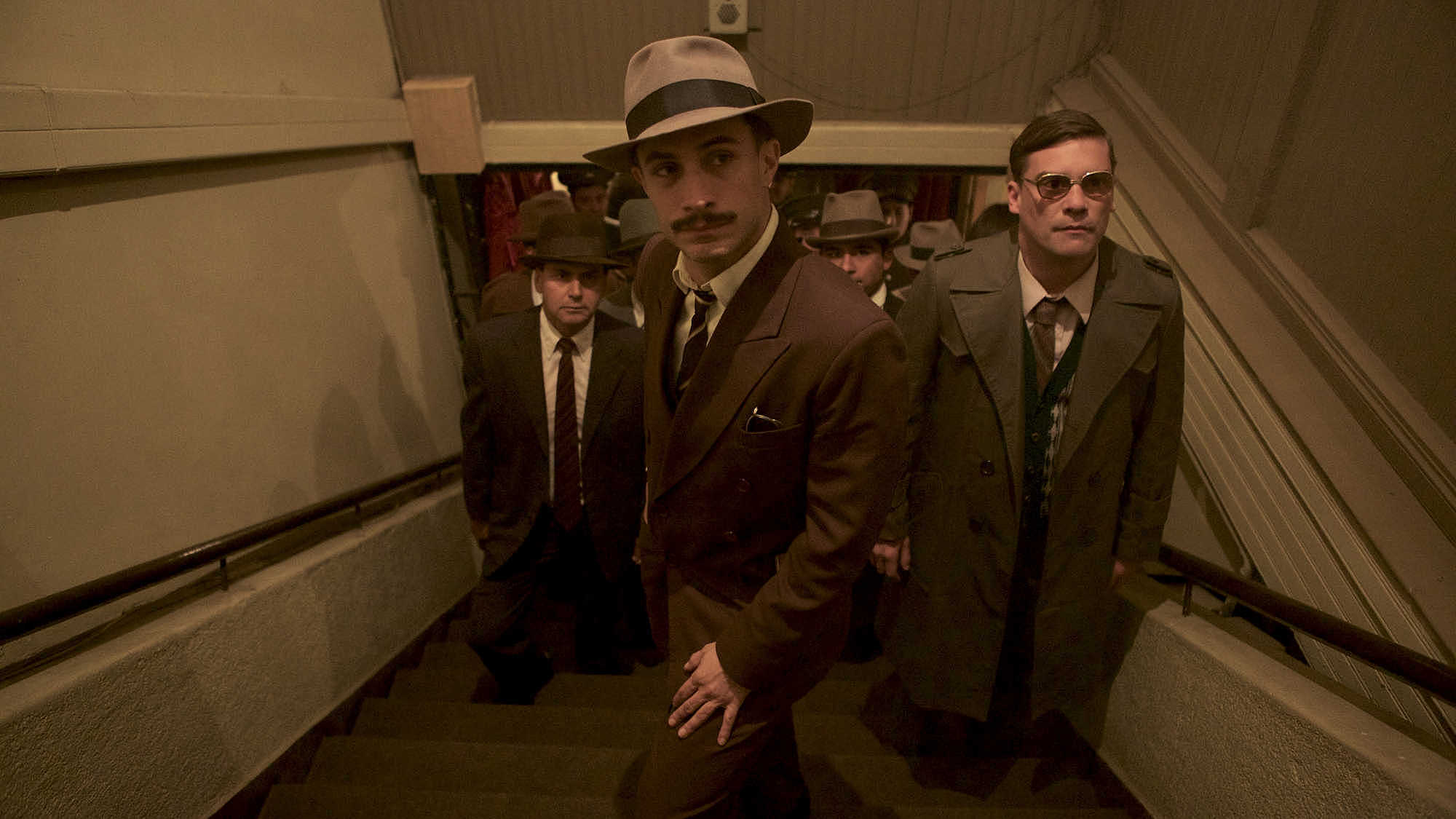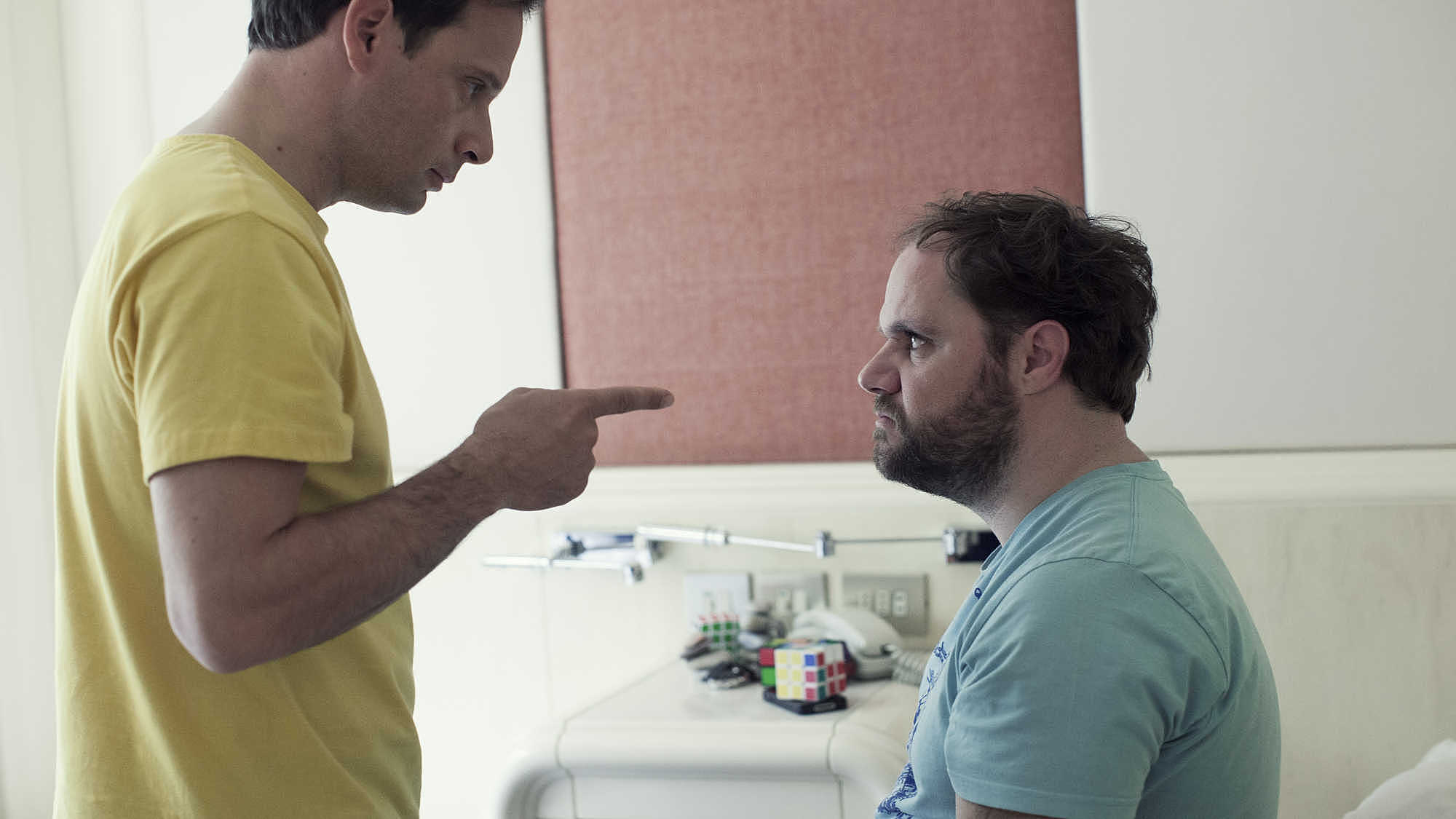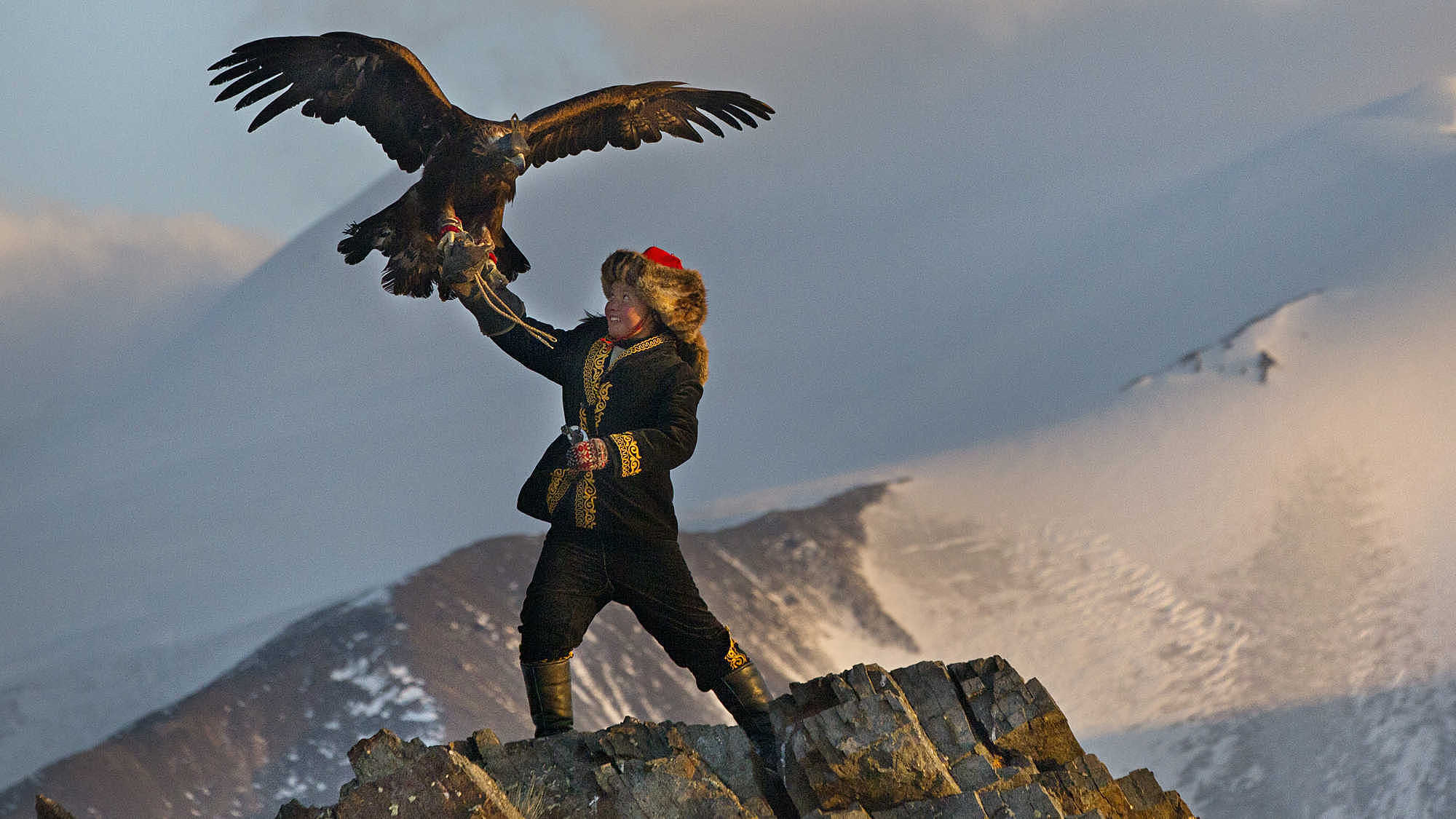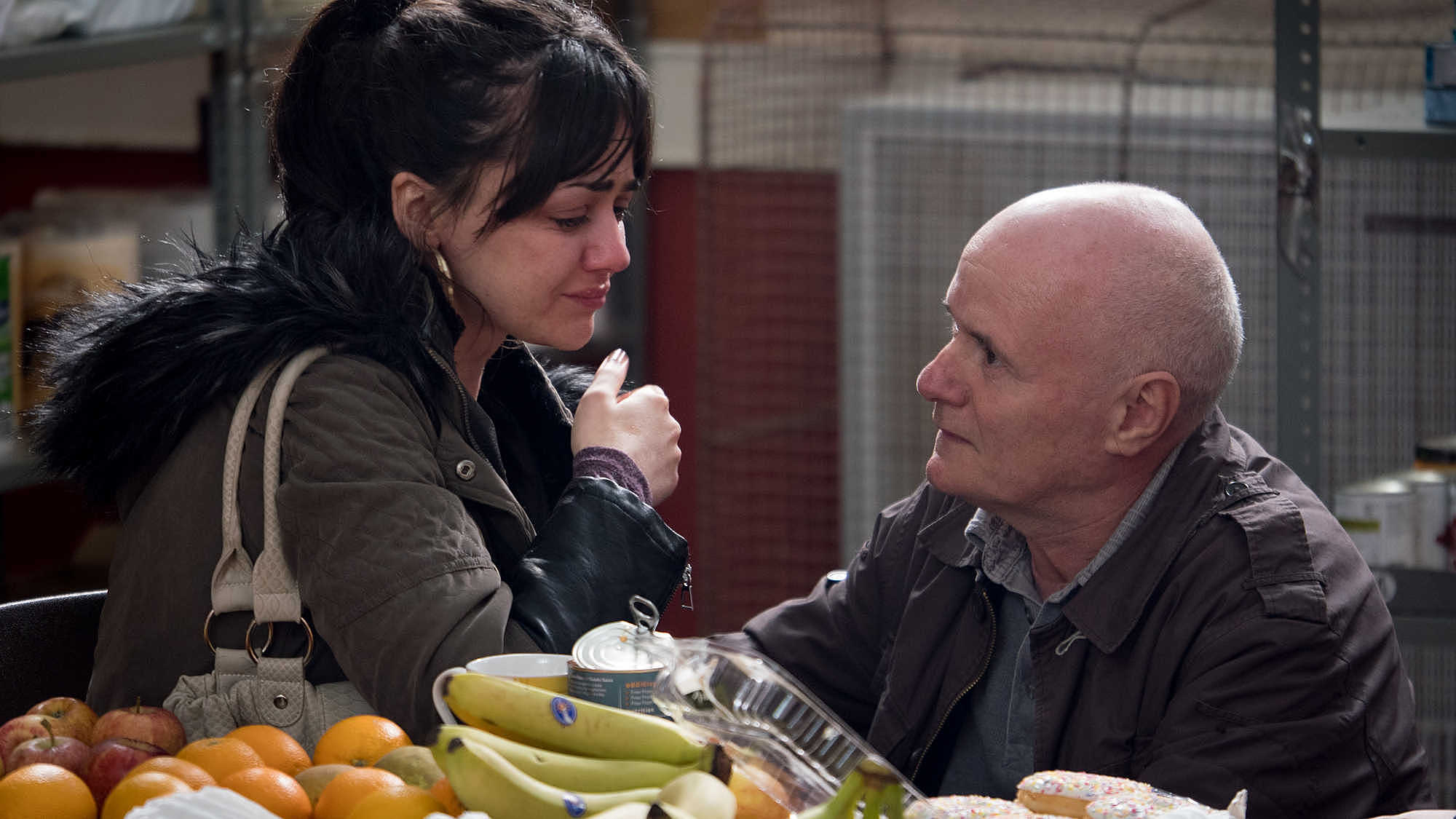NZIFF Week One: Radio Dreams, Neruda, Chevalier, The Eagle Huntress and I, Daniel Blake
Jacob Powell reports back from week one of the NZIFF, featuring Radio Dreams, Neruda, Chevalier, The Eagle Huntress and I, Daniel Blake.
Jacob Powell reports back from week one of the 2016 New Zealand International Film Festival with a look at Radio Dreams, Neruda, Chevalier, The Eagle Huntress and I, Daniel Blake.
Kicking off with the transcendent experience of Tearepa Kahi’s Poi E: The Story of Our Song (both on screen and then live on stage with the current Pātea Māori club), week one of my NZIFF experience ventured far and wide through genre, nation and language: from Iranian deadpan on the streets of San Francisco to the indignity of the British social welfare system to female falconry in the Mongolian mountains.
Drawn with incisive, intelligent humour, Babak Jalali’s deadpan comedy of souls adrift, Radio Dreams, is also a surprisingly beautiful aesthetic piece. Gorgeously hued in blues, grays and oranges, the film is shot with a photographer’s eye for composition. Switching between held-almost-too-long closeups of awkwardly under-emoting faces and creatively composed yet unfussy wide shots, the director humorously exposes the troubled interiors of the lead characters as they squabble over a day’s programming at PARS radio (San Fran’s “no. 1” Farsi radio station), supposedly culminating in a special visit by Metallica.
At the heart of the film is erstwhile Iranian writer-poet-become-disillusioned-station-manager Hamid Royani (instilled with emotional depth by Iranian folk singer Mohsen Namjoo), and his ‘all business’ nemesis, Maral (pitch-perfect deadpan from Iranian model turned actress Boshra Dastournezhad), who also happens to be the station owner’s daughter. Hamid, with limited resources, and even more ‘limited’ staff, attempts to steer the niche language-based station in artistically rewarding directions, and is frustrated at every turn by Maral: be it inserting inappropriate money-garnering advertisements in the middle of lengthy contemplative readings or adjusting Hamid’s programme at short notice to incorporate more populist content such as an interview with a local Iranian beauty contestant winner. Bearing witness to this battle of wills are the station’s underappreciated interns and visiting Afghani rock band, Kabul Dreams (the actual band members playing themselves), slated to play live on air with their heroes Metallica at the day’s end. Backgrounded by an ever-mounting tension that the famous rockers won’t actually show, Hamid, Maral, and co indirectly visit issues of cultural identity and assimilation amid the steady flow of awkward laughter. Radio Dreams undoubtedly stands with the best deadpan I’ve seen, anchored by sharp writing, starkly beautiful cinematography, and finely-tuned performances.
Unfolding with the mirthfully satirical edge of a Louis de Bernières novel — where all ideologies are skewered equally upon the stake of human fallibility — Chilean director Pablo Larraín uses a film noir framework to playfully unwrap the national significance of Nobel Prize winning poet and communist folk hero Pablo Neruda (played with pompous relish by Chilean television stalwart Luis Gnecco). As much parable as biopic, Larraín eschews dry fact-relating in favour of spinning a comedic cat-and-mouse tale based on Neruda’s life on the run, hunted as an avowed communist post-World War II.
Narrator duties switch back-and-forth between Neruda and a fictional police investigator, Óscar Peluchonneau (Gael García Bernal), tasked by the president with hunting down the rabble-rousing dissident poet. Larraín and writer Guillermo Calderón take great joy (and great license) in painting the people’s poet equal parts strongly committed communist and whisky-swilling, womanising, narcissistic bourgeoisie.
As with his 2012 feature No (also starring Bernal and featuring Gnecco), Larraín does an excellent job of evoking the Hollywood filmmaking style of the time in terms of genre (‘40s film noir) and technique (car journeys through the Chile’s mountainous regions are shot as if against a green screen only to be on-location in wide-shots). Neruda loosely pulls these elements together into a somewhat rambling but enjoyable throwback viewing experience, which intelligently posits that our heroes, though human, are no less wondrous for what they achieve.
Chevalier (Athina Rachel Tsangari)
Less over-the-top than I expected, Chevalier is frequently amusing and as quirky as filmmaker Athina Rachel Tsangari’s previous feature Attenberg (replete with masculine song versions of the memorable dance scenes from the earlier film). We join six men on a luxury yacht, at the end of a holiday, trying to fill time on their return journey to Athens. Each of the six is, in various ways, connected to the wealthy older doctor who owns the boat: a long-time friend and his lover, a favoured employee, a not-so-well-favoured son-in-law, and his awkward brother.
As any group of well-meaning, pride-driven males might, the men argue their way into a competition, which involves rating each other in various self-selected challenges — from skipping stones to best ‘erection selfie’ to fastest shelving unit builder to ‘best’ blood test results — as well as in everyday activities such as eating, sleeping, walking, and even speaking. In the end, one of them will earn a ‘Chevalier’ ring and the title of “Best, in general.”
Tsangari’s script weaves between the utterly ridiculous and the embarrassingly familiar, and just when you feel like a character may remain a one-dimensional foil, she suddenly has him exploring some deeper personal quality in reasonable depth. As much as Chevalier is an enjoyable ‘down-trou’ of the male ego, the film also acts as a more general critique of the unreasonable expectations we often place on ourselves and those around us, and how these steadily erode our sense of self worth.
The Eagle Huntress (Otto Bell)
I suspect The Eagle Huntress would be an instant hit with many festival goers, should they happen upon it (indeed, the pair of ladies seated beside me were effusive in their praise of the film’s charming qualities once the curtain fell). This is unsurprising for several reasons: the film presents a feel-good story about an unexpected heroine — 13-year-old Mongolian schoolgirl, Aisholpan — overcoming obstacles, great and small, to achieve her lofty goal of becoming her nomadic tribe’s first-ever female eagle hunter; it’s a family-friendly tale of feminine empowerment where a young girl bucks the patriarchal system, narrated by Hollywood’s newest ‘girl power’ icon, Daisy Ridley (Rey in Star Wars: Episode VII - The Force Awakens); and it’s an ‘accessible’ documentary about ‘exotic’ people and pursuits shot in astoundingly beautiful locales.
All these things are true but director Otto Bell’s heavy-handed filmmaking style goes to great pains to augment a subject and setting that really don’t require it. Overly-directive music and editing choices are set to full — it’s like Bell used reality TV as a template for his documentary style — in an attempt to emotionally cue an audience who are already watching something so simply evocative that all these filmmaking choices do is distract. Fortunately, these missteps don’t derail the raw beauty of the film’s backdrop, or the utter charm of it’s feisty young subject whose grounded optimism and determination raise nothing but admiration and respect.
Despite grumblings from some sectors of the film critic community, I’m unsurprised that Ken Loach’s latest I, Daniel Blake was awarded the Palme d’Or by the George Miller-led Jury at Cannes this year. A simple, moving drama — in the best Loach style — the film explores bureaucratic cynicism in the face of increasingly widespread poverty.
The eponymous Daniel Blake — Dan to his mates — is given life in a restrained, empathetic performance from Brit stand-up comedian Dave Johns. Advised not to work for a period by his doctors due to a major heart attack, the film gives us Dan’s frustrating attempts to deal with a pressured and officious social services system where the letter of the law trumps the human need it was enacted to meet. Dan’s life intersects with single mother Katie (an equally authentic turn by rising stage and screen talent Hayley Squires) and her two school-age children, recently relocated from state housing in London to Newcastle, and who are also struggling to negotiate the complicated welfare system. Each provides practical and moral support to the other as they face a dehumanising system and the various indignities of poverty, such as the inability to pay the power bill or provide enough food for your family.
Exuding a sense of warmth and harsh inevitability I, Daniel Blake falls somewhere between the dark-edged comic tone of Loach’s Looking for Eric (2009) and the more desperate drama of 2007’s It's a Free World...The outspoken filmmaker has never hidden his socialist agenda and I, Daniel Blake tows ‘Loach party line’ pretty hard, but you can’t fault the film for the poignancy or timeliness of its message. We need look no further than the current homelessness crisis in Auckland (and other parts of New Zealand) and the relatively ineffectual response of government agencies, especially compared with community efforts like the practical aid arranged by Te Puea Marae and their network of volunteers. Loach and writing partner Paul Laverty successfully engender strong investment in an authentic-feeling cast of characters, making the film’s latter drama all the more affecting. There were few dry eyes in our screening by the time the credits rolled.
